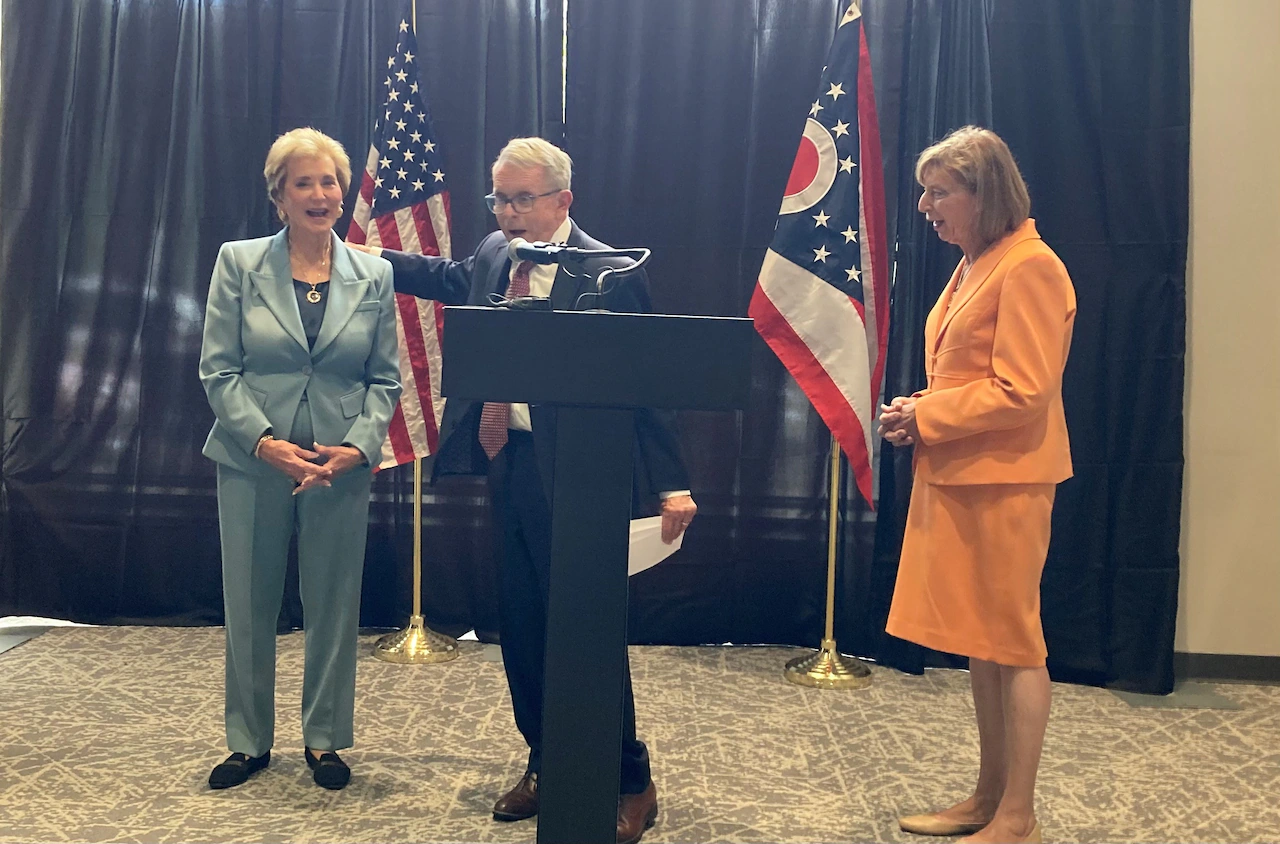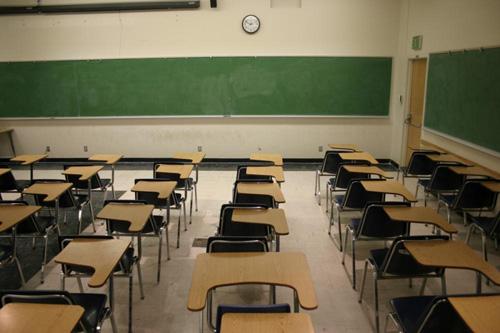
COLUMBUS, Ohio -Despite plans to shutter the U.S. Department of Education, Ohio is in line to receive nearly $105 million over the next five years from the federal government to expand charter school education in the state.
U.S. Secretary of Education Linda McMahon announced the funding, which will go to Ohio government entities and charter schools, late Wednesday afternoon at an appearance in Columbus.
The money will be to open new charter schools and expand high-quality charter schools in the state, to be spent on charter school personnel, new schools and improving existing facilities, McMahon said.
“That’ll really be up to the states to decide where that money can be spent best,” she said.
McMahon made her comments at the Center for Christian Virtue, a conservative public policy organization. The stop was part of a 50-state tour she is making to promote school choice and the theme of returning education programs and decisions to the states.
Gov. Mike DeWine, who introduced McMahon, said he supports the idea of focusing on high-performing charter schools, particularly for children who are underserved. He said that his administration will follow the federal guidelines for the money, once those come out.
McMahon highlighted the One Big Beautiful Bill Act recently passed by Congress and signed by President Donald Trump, for how it will help private school families.
Under that law change, people can donate up to $1,700 to scholarship granting organizations, which give families scholarships to pay for eligible educational expenses at private schools. The families will receive a nonrefundable tax credit for the same amount of the donation.
As part of the state’s benefits for private schools, Ohio also has scholarship granting organizations to which families or other entities donate money. The state gives donors up to $750 of the total amount contributed, or $1,500 if filing jointly, in a nonrefundable credit.
McMahon said she expects people can utilize both tax credits for a donation, depending on whether they are filing their state or federal income tax returns.
The U.S. Department of Treasury still needs to write the rules for the federal credit, said Erika Donalds, a senior advisor for America First Works, a conservative advocacy organization also present at Wednesday’s event. McMahon is a board member emeritus for the organization.
The eligible scholarship granting organizations can use the donations on private school scholarships, and supplemental services such as tutoring. The rules will be flexible, Donalds said.
Trump worked hard to make sure the One Big Beautiful Bill Act passed with the tax credits, McMahon said.
“I want to share with you that the president is such a believer in school choice,” she said at the event, which was attended by families with kids in private schools. “He does not believe that any child should be trapped in a failing school, and he is working very hard to make sure that those policies get pushed through.”
Ohio currently spends about $1 billion across five private school voucher programs – two of which were recently struck down by a Columbus judge as unconstitutional, although the state is appealing the decision.
In 2023, the legislature increased family income eligibility for one of the programs to include families of all income levels. The highest-earning families get a partial scholarship.
Since then, families claiming vouchers have increased at a frenetic pace. Cleveland.com/The Plain Dealer found that the new families on vouchers were not fleeing troubled urban districts but were more likely to be wealthier families in the suburbs, whose children were already enrolled in private schools, but had only recently qualified for the vouchers.
McMahon said that she continues to support the closure of the U.S. Department of Education, which Trump announced in an executive order earlier this year. This would give states more power to make educational decisions, she said. Critics say it puts federal funding for education at risk of being cut.
In March, a Cleveland.com/Plain Dealer review found that Ohio school districts receive millions from the federal government mostly for special education and high-poverty schools.
For instance, during the 2023-2024 school year at the Cleveland Metropolitan School District, the feds provided an average of $6,646.49 per student. The state provided $10,026.95 per student and local property taxes paid $9,089.99 per student.
McMahon said it will take an act of Congress to formally close the U.S. Department of Education. Some of the department’s functions would go to other federal agencies. Other functions would go away, leaving states to make rules.
“’I’m working to put myself out of a job because we are returning education to the states,” she said.



